Lojong Mind Training Lessons 1 – 7
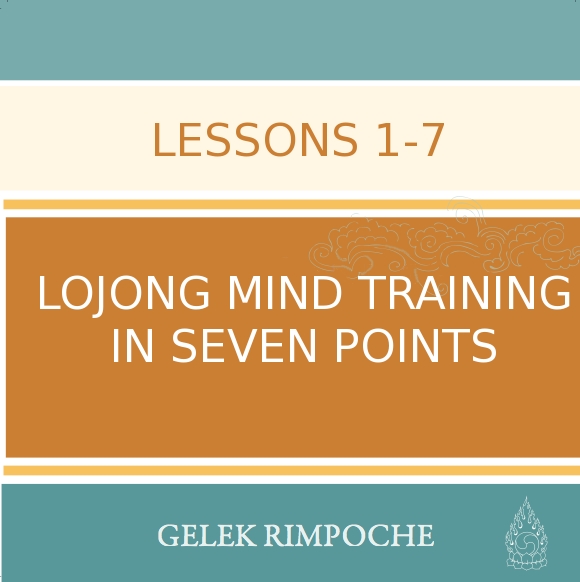
According to Buddha the original cause for our experiencing happiness and suffering lies within our own minds. If we want to free ourselves from problems and pain, we have to free ourselves from addictive habitual patterns.
The most compelling and hardest to come to terms with is the continual creation of ego. In this lojong commentary Gelek Rinpoche hands us “nine bullets to shoot at the ego”.
If they reach their target, the way is clear towards opening up towards our innate goodness.
Click here to view lessons 8-14.
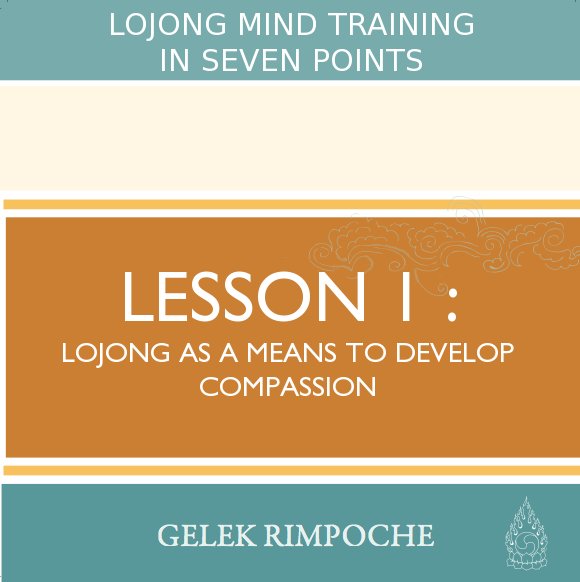
Lojong as a Means to Develop Compassion
Lesson Number 1 of 27
Has the word “compassion” become a buzz word?
In this lesson Gelek Rimpoche reclaims and makes compassion richly meaningful by bringing it close to the heart. In particular he explains the mind training of lojong as a means to develop the ultimate love and compassion known as bodhimind. In order to develop bodhimind, Rimpoche suggests that we look at ourselves as a mother does to her child.
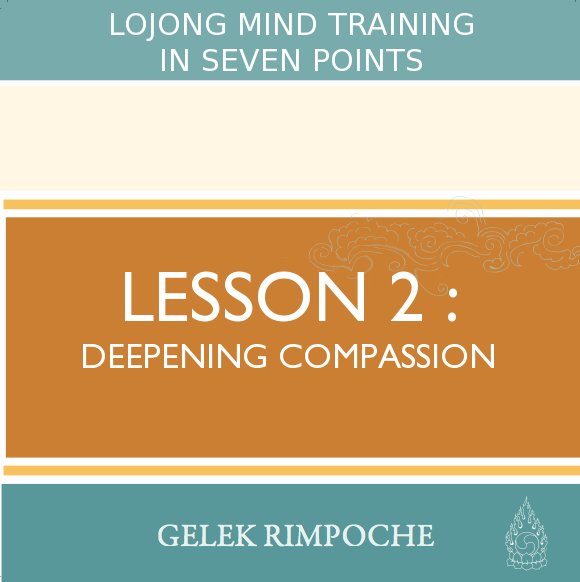
Deepening Compassion
Lesson Number 2 of 27
In trying to help others, it is easy to burn out, give up or lose interest. However, with compassion as inspiration, we are pushed forward.
In this lesson Gelek Rimpoche gives inspiring examples of Buddhist saints who embodied compassion and explains how care develops into compassion, then great compassion and finally, bodhimind. Rimpoche emphasizes following an authentic, tried and true method such as Buddha’s teaching in order to successfully increase our ability to have compassion and finally reach total enlightenment.
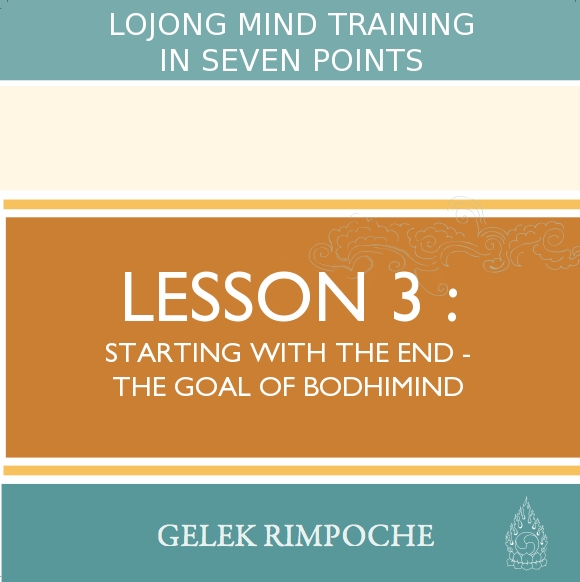
Starting with the End – The Goal of Bodhimind
Lesson Number 3 of 27
Is ultimate, unconditioned, unlimited love and compassion too much for us? If bodhimind is the goal, how do we start?
In this lesson Rimpoche makes homage to compassion and presents the end goal of bodhimind. To inspire and guide us at the beginning of our spiritual path toward such a goal, he explains the importance of relying on Buddha’s authentic teachings, the tradition, and making good effort.
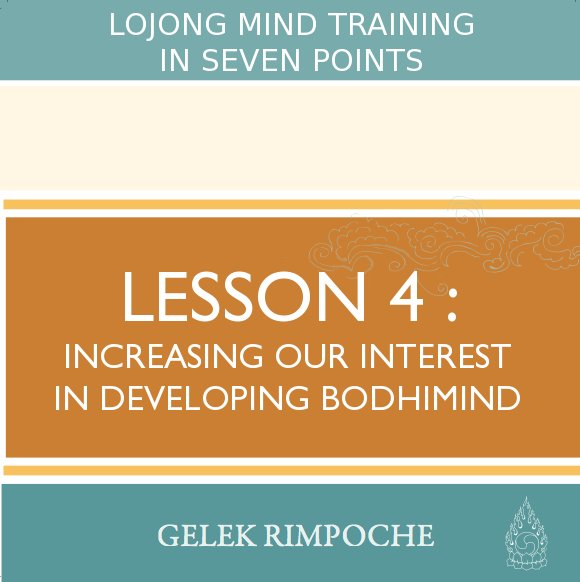
Increasing Our Interest in Developing Bodhimind
Lesson Number 4 of 27
What are the qualities of bodhimind? Could we sustain it during in a degenerated age?
In this lesson, Rimpoche explains that the way to gain interest is by reflecting on the qualities of bodhimind. He explores the meanings of the metaphors “diamond”, “sun” and “medicinal tree;” and describes the “Five Terribles” of a degenerate age, where strong negative emotions and difficulties abound. He ends this lesson by urging us to consider seeing such difficult circumstances as a personal opportunity.
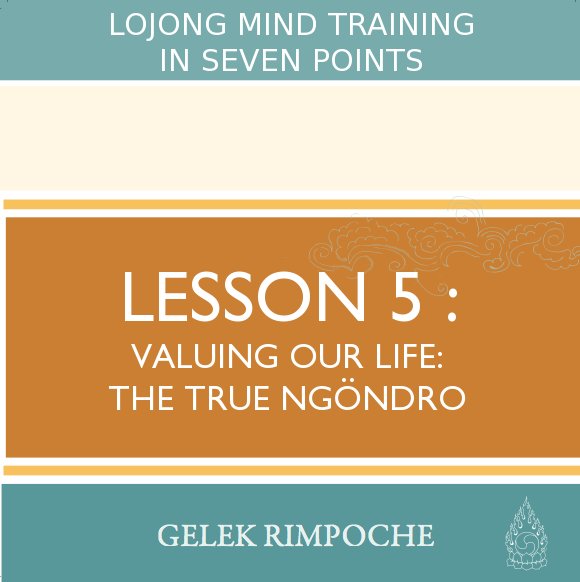
Valuing Our Life: The True Ngondro
Lesson Number 5 of 27
When our practice begins with deepening an appreciation of our life, our preparation is authentic and true, and it builds a strong ground for our practice.
In this lesson, Rimpoche notes that while traditional Preliminary Practices are typically understood as the preparation (Ngöndro), Rimpoche highlights that the true preparation for spiritual development is looking at the value of our life. He urges us to observe our life and understand it using both concentration and analytic meditation. To help us become fully convinced that this is so, he suggests several ways to explore our life’s value.
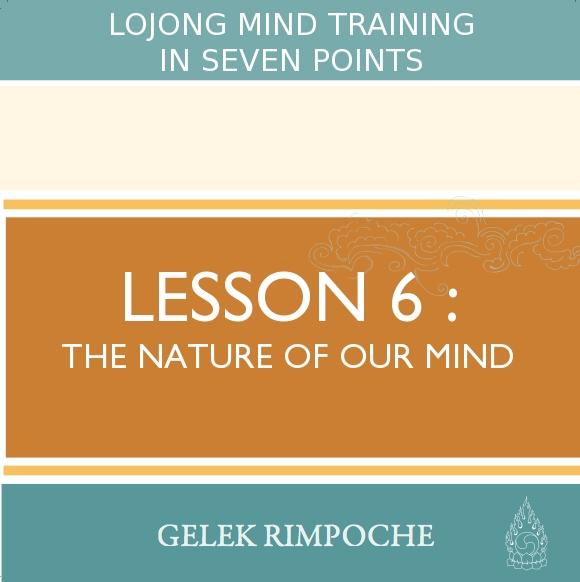
The Nature of Our Mind
Lesson Number 6 of 27
What is the nature of our mind? How do emotions affect it? Can we train our mind? How?
In this lesson, Rimpoche discusses how we usually use our mind to solve problems. Here, he suggests that we set our motivation to develop ultimate love and compassion, shift our focus to inside, and learn something about the mind itself. He describes the luminous mind, and how thoughts and feelings pop up and color the mind. After offering some mental exercises, he concludes this lesson by stressing the capability of our mind, and the preciousness of our life.
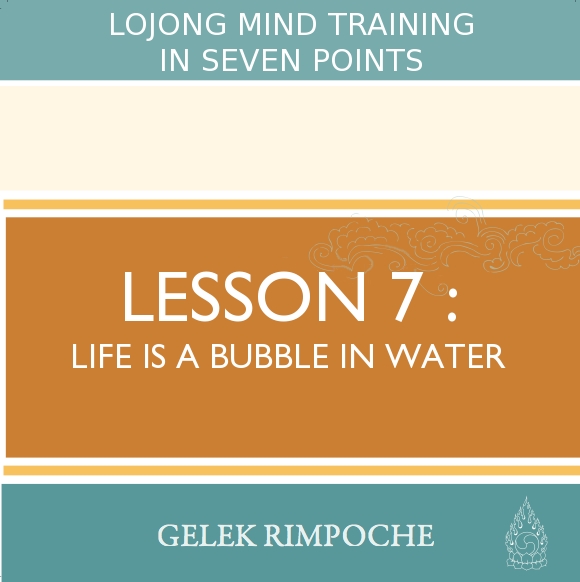
Life is a Bubble in Water
Lesson Number 7 of 27
I will definitely die. I don’t when. What will happen when I die? What can I do to help myself?
In this lesson, Rimpoche explores the concept of impermanence. He suggests thinking, analyzing and concentrating on the gross and subtle versions of impermanence, to become free of suffering, and ultimately to obtain enlightenment to benefit all beings. Because our mind is automatically colored by negative emotions, he describes training the mind to go in the opposite direction so that it automatically does the right thing at death.

